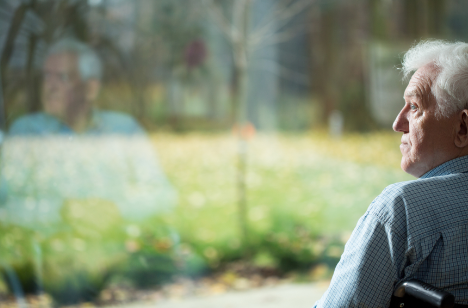Loneliness
Being alone on occasion can be healthy. It may help you relax, unwind and clear your thoughts. Some people are quite content to be alone and are able to enjoy a healthy, fulfilling life.
However, there are those who struggle with being alone and have feelings of sadness. Most of us have experienced loneliness at some point in our lives due to a circumstance such as death of a loved one, health issue or end of a relationship. Those feelings may ease with the passing of time but in some cases, the sadness lingers and becomes part of daily life.
Loneliness in Older Adults
Older adults often find themselves susceptible to feeling lonely and isolated for a variety of reasons, such as:
- Retirement – loss of co-workers and purpose
- Limited mobility
- Giving up driving
- Hearing loss
- Chronic illness
- Dementia
- Depression
- Loss of loved ones such as spouse, siblings and friends
- Estrangement from family
Although today’s options of having groceries, take-out food and medications delivered to your door make it easier to “get by” living alone, it is still far from ideal.
Loneliness and Well-Being
Prolonged or chronic loneliness has a negative impact on a person’s well-being and may cause serious health concerns. According to researchers at the National Institute on Aging, loneliness and social isolation are associated with higher risks for conditions such as heart disease, depression, and cognitive decline.
Take Action
What can be done to combat the feelings of sadness and distress? The first key is to take action – make a first step and stick to it!
- Visit an area senior or community center to see what options are offered – you will probably find one that appeals to you. It’s a great way to make friends who have similar interests.
- Seek out volunteer opportunities – finding a purpose is a good way to ward off loneliness. Churches often have many options available.
- Move to a senior living community. There is a wide variety from which to choose and most offer meal options, an array of activities/entertainment/program, exercise classes, trips to museums, concerts etc. Being part of a community, whether independent or assisted living, will lessen isolation and may improve overall health.
If you find it a challenge to take that first step or have trouble socializing due to anxiety, depression or even shyness, visit your primary care doctor. They are a good resource for getting you the help you need to address your feelings of loneliness. Your health may depend on it.
For further information, visit Social Isolation and Loneliness Outreach Toolkit | National Institute on Aging (nih.gov).

